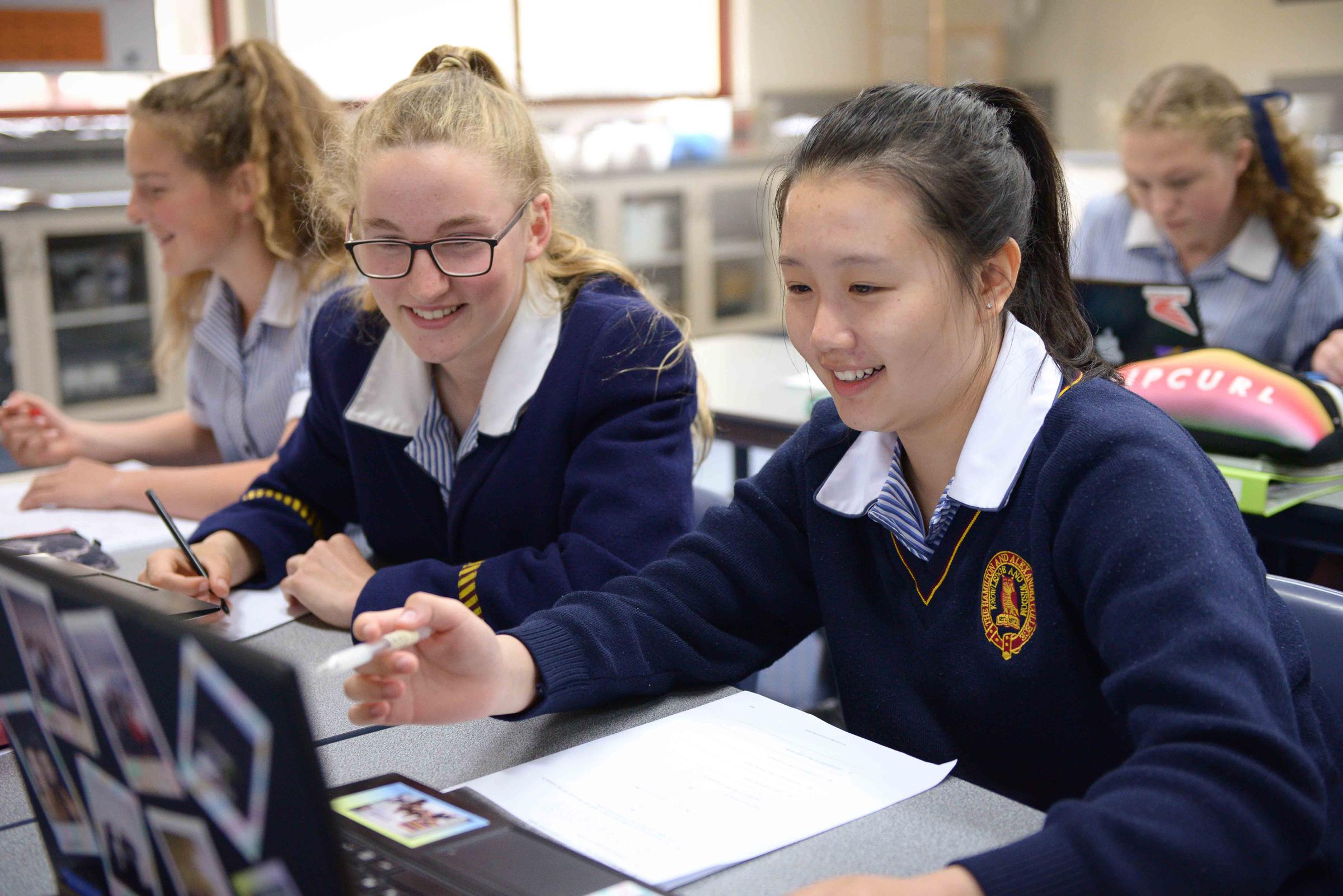Deputy Principal, Senior Years and Wellbeing

Fear
In light of some recent tragic events regarding family and friends of the College, I found this article very timely and very appropriate. It doesn’t hurt to remind ourselves that facing up to some of our worries and concerns may be beneficial in the long term.
A popular saying is 'feel the fear and do it anyway’. The theme behind the saying is common - if you are scared of something, walk up to it, meet it head on and you may be surprised that it's not as scary as you thought. Remember the Tin Man in the Wizard of Oz? He had no courage - until he found that what he’d been afraid of all his life, wasn't really frightening at all...and he regained his self-esteem.
Fear is like furniture and objects in a dark room. We walk into a dark room and start to bump into obstacles and soon we are anxious and stressed because we don't know what is in our way. We stop and become paralysed with fear. Yet once we turn the light on, we see that our fear is unfounded. What we thought was a terrifying thing that goes 'bump in the night' was only a sofa! Some people are so immobilised by the fear that they wait outside the door - they are not even willing to walk into the dark room let alone walk through it! All that anxiety and strain may be unnecessary.
It's like people who have for example, a lump in their breast or pain in their chest and they ignore it because they are too scared to go and find out what it is. This is
one situation where fear is very damaging. If the lump or pain is from some innocent cause, they’ve added unnecessary stress. If there is a more sinister problem (that's a scary way of saying if it is cancer or a heart problem) the sooner you know and do something about it, the better. Either way fear is going to create problems - maybe life threatening ones.
Much of our fear in real life is the same - imagined. If we could face the fear (even if we don't know why we have this fear), it's often like turning on the light - things are suddenly in perspective and we can even feel foolish for being scared.
Most fear starts by what we say to ourselves. Fear is an intangible thing. In some cases it's a very useful emotion. When we are walking down a dark alley, it' s smart to be alert and aware that danger might be present; we may even decide to go another way that is safer. But most of the time fear is a force that stops us. It hinders our growth and progress.
Some people find fear is a motivator. They move away from the thing that frightens them. For example fear of a heart attack may prompt someone to make mega lifestyle changes like taking up exercise and changing their diet. In this case it's useful - although it may be interesting to consider moving towards the concept of a new, healthy, energetic and enthusiastic you instead.
It can be helpful to look at fear as a signpost. It may indicate another 'growth opportunity' in our lives! If we are feeling frightened about something, it can help if we look more objectively and see what
would happen if we faced the fear (with some trepidation) but confident that we would survive?
The majority of fears that slow our progress are imaginary. People sit around worrying about what might happen, what the consequences might be, what a phrase might mean or they know they are frightened senseless but they don't know why. To some degree it's useful to THINK about outcomes of various behaviours and situations. It's not useful to dwell on all the negative aspects so much that you scare yourself into inaction! Or to allow fear, without a conscious source, to ruin your life.
A classic example is 'fear of failure'. We can be so scared of failure that we don't even bother trying! It's one of the main factors that differentiates people who get what they want and those who don't. What if we viewed mistakes as learning rather than telling ourselves we failed? Imagine the difference in our chemistry and physiology (ie the chemicals we release in our own bodies as a result of what we think - you know - think fear and we release adrenalin - not good or think positive and release endorphins). This can be the difference between having an ulcer, heart attack or not.
Ask yourself is this rational? Is it a necessary part of my life? Is it useful to me in any way? If you answer 'no' to all the above, then FEEL THE FEAR AND DO IT ANYWAY!
Amanda Gore
Miss Kristen Waldron
